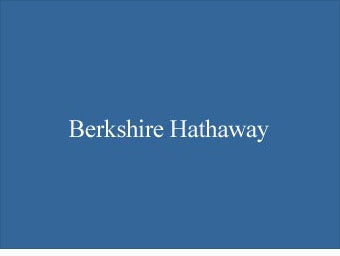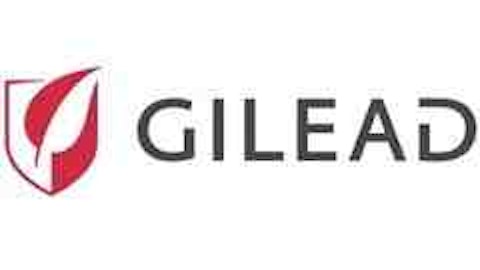Share repurchases, commonly referred to as stock buybacks, can’t seem to find an identity. One day, investors are told it’s a great and accretive action, and the next, it’s akin to lighting shareholder money on fire.
Unfortunately, both can be true.
“Share buybacks” has become somewhat of a buzz-phrase for executives to trumpet to Wall Street, but what is the rationale behind initiating such a program? After cutting through the glitz and the glamour of being a CEO, the most important responsibility of any company’s chief executive is to effectively allocate the firm’s capital to ensure the best returns for its shareholders in the future.
Warren Buffet, the master of allocation atop Berkshire Hathaway Inc. (NYSE:BRK.A), has been wildly successful in repurchasing Berkshire Hathaway Inc. (NYSE:BRK.A)’s own stock during times when he views the action as the best use of capital compared to other options.
Considering the options
If CEO of Company XYZ had a list of possible projects to allocate capital to, it may look something like this:
1). Build new factory
2). Expand workforce
3). Issue or increase dividend
4). Repurchase shares
5). Expand into new markets
6). Pay down debt
Stock buybacks are nothing more than a capital allocation decision. The CEO and management would consider all of these options and determine which projects surpass the company’s “hurdle rate” and generate the best return for the company, and thus, its shareholders.
If a company announces a share buyback program, it is essentially communicating that it believes its own stock offers the most attractive return for that amount of capital at that point in time.
Looking beyond the annoucement
One sector that has been increasingly active in share repurchases is the financial sector. In March, instead of raising its dividend, Bank of America Corp (NYSE:BAC) announced its intention to initiate a $5 billion share buyback program through the beginning of 2014. The decision to authorize buybacks instead of an increased dividend allows Bank of America Corp (NYSE:BAC) to be more flexible as to when it deploys the capital.
The announcement of B of A’s plan was greeted with celebration from the market, and the stock ticker higher. One of the justifications for the positive reaction was the fact that the bank’s stock was trading at a significant discount to its stated book value; however, that is not a one-size-fits-all justification.
Why was and why is Bank of America Corp (NYSE:BAC) still trading at such a significant discount to book value? The answer lies in the fact that the bank has generated abysmal returns on equity and assets over the last several years. If Bank of America Corp (NYSE:BAC) continues to clean up its legal issues and limit writedowns and losses, its returns may creep higher and push the share price higher — making the repurchases a successful investment. But, investors should not assume that just because a stock is trading below book value, share buybacks are automatically accretive to shareholders.
There’s a reason its cheap
If a stock is trading at a deep discount to book value, the discount may be a sign that the market does not believe the company has bright growth prospects based on its current strategy. Rather than allocate capital to buy back shares of a flailing company, management may be better served to invest that capital into a new business line or technology expenditures to increase efficiency and reduce costs.
While the market’s reaction to share buybacks is usually positive (because if share count is reduced, earnings per share will increase in theory), investors need to remember that no stock deserves to trade at 1.0 times its book value or 16 times trailing earnings. The stock market is an auction market – there are not mandated prices that determine when a stock is a good buy or when a company should repurchase its own stock.
If a company that you hold stock in announces a buyback program, ask yourself, “Is this the best use of capital?” or “Is this a signal that management believes its stock is undervalued or that it can’t find additional investment opportunities?”
The article Clearing the Hurdle: Will Share Buybacks Boost or Crush Your Returns? originally appeared on Fool.com and is written by David Hanson.
David Hanson has no position in any stocks mentioned. You can follow David on Twitter. The Motley Fool recommends Bank of America and Berkshire Hathaway. The Motley Fool owns shares of Bank of America and Berkshire Hathaway.
Copyright © 1995 – 2013 The Motley Fool, LLC. All rights reserved. The Motley Fool has a disclosure policy.





